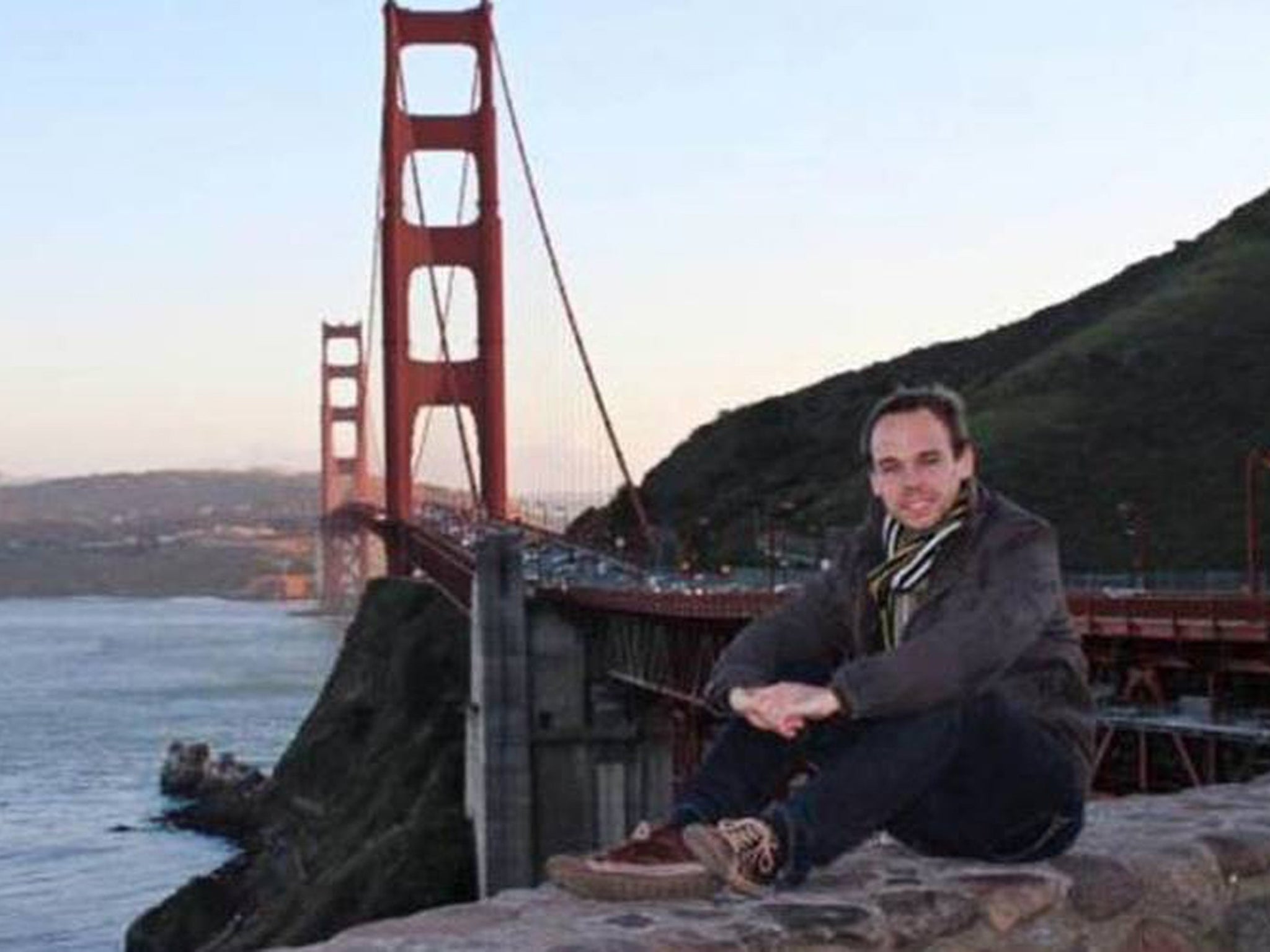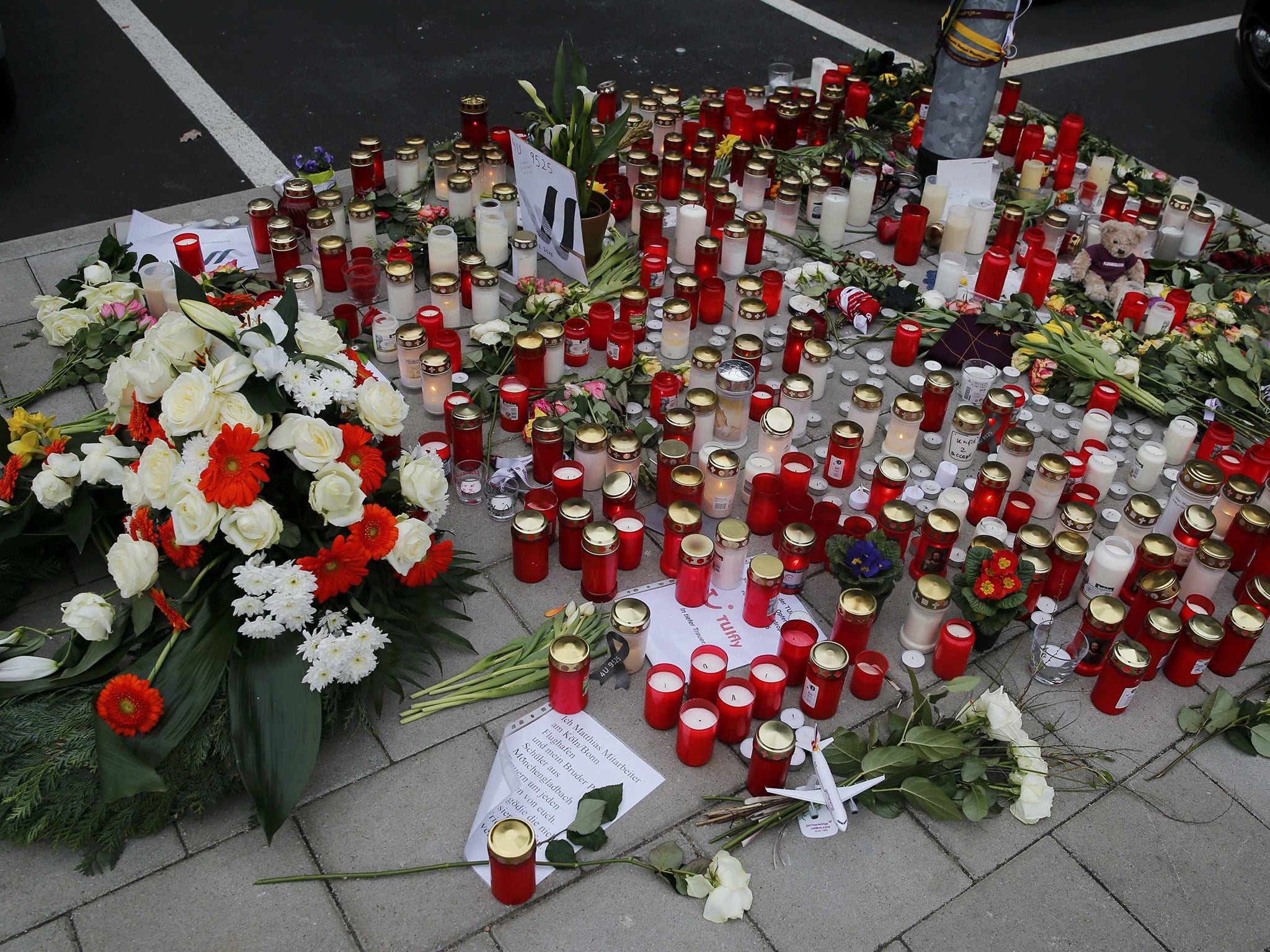Germanwings crash: Andreas Lubitz - the killer co-pilot who deliberately flew 150 people to their deaths
Black box suggests 28-year-old locked out colleague before descent as airline says it does not have 'slightest clue' what might have caused him to fly plane into a mountain

A deliberate act of suicide – and mass murder – by a young German co-pilot without known terrorist links is believed to have caused the Germanwings disaster in the French Alps, which killed 150 people.
Air travellers were today confronted with the most terrifying possible explanation for the crash on Tuesday. Cockpit sound recordings reveal that Andreas Lubitz, 28, deliberately put the Airbus A320 into a gentle 11-minute dive to destruction after locking his captain out of the cockpit. He ignored screaming passengers and hammering on the cockpit door by crew members as he steered the Barcelona-Düsseldorf flight into a 500mph collision with a mountainside 100 miles north of Nice.
The German Chancellor, Angela Merkel, spoke of an “inconceivable event” and “a crime against the victims and their families”.
The revelations pose awkward questions about the psychological screening of airline pilots and the rigidity of the anti-terrorist measures introduced after the attacks on the World Trade Centre, which allowed Lubitz to lock his colleague out of the cockpit.
The apparent act of mass slaughter is all the more disturbing for having occurred on the kind of low-cost flight between European cities which has become commonplace in the past two decades.
Lubitz was described as a quiet, friendly, flying-mad young man who had graduated from amateur glider flights to the Lufthansa pilot training scheme. He had no known extreme political views. Germanwings, a subsidiary of Lufthansa, said it did not have the “slightest clue” what might have caused him to fly the airliner into a mountain. And James Phillips, of the German Pilots Association, expressed anger that Lubitz had been blamed so quickly. “It is a very, very incomplete picture… I have the feeling that there was a search for a quick answer, rather than a good answer,” he told Time magazine. “Was he [Lubitz] conscious? Could he open the door?”
French investigators were questioning Lubitz’s parents today. They had travelled to France with other victims’ relatives before it emerged that their son was suspected of destroying the plane.

Today the Marseille public prosecutor, Brice Robin, confirmed information which had leaked overnight through “a senior military official” to The New York Times. A sound recording by a black box recovered at the crash site revealed that one pilot had been locked out of the cockpit while Flight 4U 9525 made its dive of 10 minutes and 47 seconds on to a mountain ridge in the Alpes de Hautes Provence.
“Alone in the cockpit, the co-pilot manipulated the buttons of the flight monitoring system to make the aircraft descend,” Mr Robin said. “This action can only have been voluntary.”
Lubitz then used the anti-terrorist precautions built into airliners since the 9/11 hijackings in the United States to prevent his captain returning from the toilet. When the captain tapped in his re-entry code, Lubitz is believed to have pushed a “deny” button which cannot be overridden from outside the cockpit. “The actions of the co-pilot, for reasons that we cannot explain, can be interpreted as a wish to destroy the aircraft,” Mr Robin said.
Sounds recovered from the cockpit voice recorder revealed that Lubitz was breathing normally to the end, proving that he had not suffered a heart attack or any other sudden illness. Just before the plane crashed, the microphones picked up the sound of crew members trying to batter down the cockpit door and of passengers screaming. The 144 passengers were probably unaware of their terrible fate until a few seconds before the crash, the prosecutor said. All died instantly.

The victims included three Britons, 72 Germans, 35 Spaniards and people from 15 other nationalities. The distressing operation to recover what remains of the bodies continued throughout today. Scores of relatives from Germany, Spain and other countries converged on Marseille. They were then taken to a makeshift mortuary and chapel at Seyne-les-Alpes, five miles from the crash scene, high on a ridge of the 9,700ft Massif d’Estop.
One mountain guide who initially brought rescue workers to the scene said: “There are not whole bodies. There are only parts. It is beyond distressing to see what has been done to these fellow human beings.”
There have been at least four other suspected cases of “airliner crash by pilot suicide”. The last involved a Mozambique Airlines plane which crashed in Namibia in 2013, killing 23 people.
The deliberate destruction of Flight 9525 raises several unsettling questions. Aviation experts pointed out that many airlines insist on another member of the crew sitting in the cockpit when a pilot or co-pilot leaves for a rest or toilet-break. This procedure was not followed on this occasion. EasyJet said that it would change its procedures to ensure there were always two crew members in the cockpit at all times from today.
Experts also suggested that the anti-terrorist “deny” button which allows a pilot to lock a cockpit door from the inside would have to be reconsidered.
Join our commenting forum
Join thought-provoking conversations, follow other Independent readers and see their replies
Comments
Bookmark popover
Removed from bookmarks